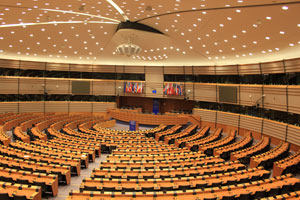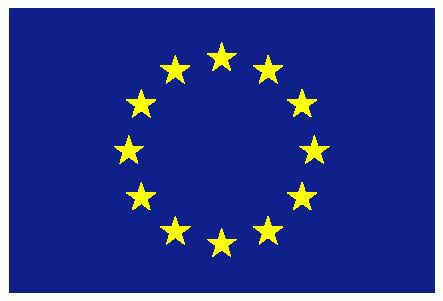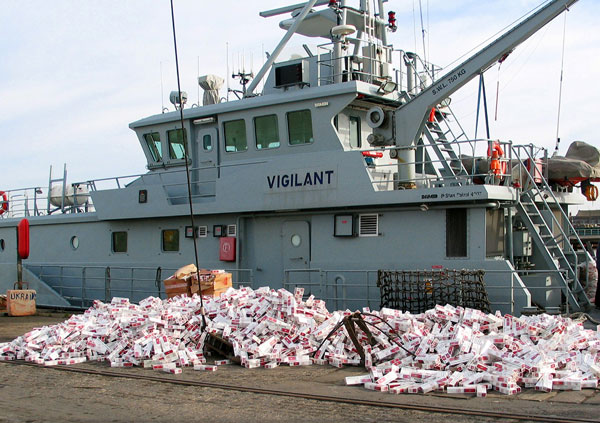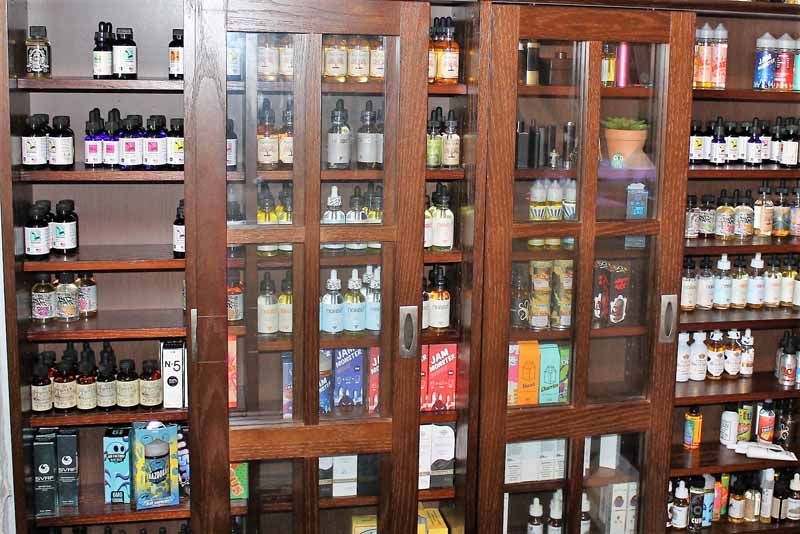An Italian member of the EU Parliament has asked the Commission what steps it is taking to reduce the risk of tobacco poisoning among tobacco farmers and their families.
In a preamble to her questions, Barbara Matera said that when the proper safety procedures were not adhered to, the risk of tobacco poisoning among farmers was high.
‘Zimbabwe, in particular, has experienced a large number of tobacco poisoning cases, which can be attributed to a lack of education about the condition and a lack of funding for the proper preventive equipment,’ she said.
‘This sickness also greatly affects children who help out with the harvest in rural areas.’
Matera said tobacco was Zimbabwe’s largest export product, and its largest agri-food export to the EU, before asking:
‘What is the Commission doing to promote education among tobacco exporters?’
‘What can the Commission do to provide adequate equipment and protection for farmers, especially those with children?’
The Commission is due to answer in writing.
Tag: European Union

A question of poisoning

Vaping evidence highlighted
An Irish member of the EU Parliament has asked the Commission whether it will be taking account of the contents of a UK parliamentary report and a letter signed by four academics – both of which come out in favor of vaping – when the Commission produces its implementation report on the Tobacco Products Directive.
In a preamble to his questions, Luke Ming Flanagan thanked the Commission for its answer to his previous question on vaping and the Tobacco Products Directive (E-002293/2018).
Flanagan then asked, with reference to the Commission’s statement that it continuously monitored developments, whether it was aware of the recent all-party UK House of Commons Science and Technology Committee report that was published on August 17 and that came out strongly in favor of vaping.
He asked also; was the Commission aware of the submission to the World Health Organization of a letter signed by four top academics, again outlining, in great detail, the case in favor of vaping.
And he asked whether the Commission could confirm that it would now take those reports into consideration in the implementation report it was required to submit in 2021, in line with Article 28(1) of the directive.
The Commission is due to reply in writing.
Illegal trade threat to EU
A Portuguese member of the EU Parliament has raised concerns about a possible increase in the number of cigarettes being smuggled into the EU from Montenegro.
In a preamble to three questions posed to the Commission, Ana Gomes said the Commission’s 2018 report on Montenegro had highlighted continuing issues surrounding illicit tobacco products entering the EU from the country’s free-trade zone at the port of Bar, and OLAF’s [European anti-fraud office] co-operation with national customs authorities with a view to controlling the flow of these products.
‘Media reports confirm that the Government of Montenegro has authorised a new free-trade zone in Podgorica to begin operations,’ she said.
‘The Podgorica free trade zone is all the more concerning as it contains a cigarette factory, which reportedly began production trials in late May 2018.
‘These developments present a new threat which could result in an increase in the number of cigarettes being smuggled into the EU from Montenegro.’
The MEP asked:
* ‘Can the Commission confirm that it is aware of the establishment of a new free-trade zone in Podgorica?
* ‘Can it provide details of the measures it intends to take with the Montenegrin authorities to put in place adequate controls on the flow of products from the new cigarette factory located in the new free-trade zone in Podgorica?
* ‘Can it indicate how the illicit trade in tobacco products will be addressed in the context of the accession negotiations on Montenegro’s candidature to join the EU?’
The Commission is due to answer the questions in writing.
Smuggling losses unknown
The European Commission has said it is not possible accurately to quantify revenue losses due to the illegal trade in tobacco products.
The Commission was responding to questions posed by the Spanish member of the European Parliament, José Ignacio Salafranca Sánchez-Neyra, who prefaced his questioned by saying that Tobacco smuggling was one of the leading types of fraud creating huge losses for the EU budget.
‘With that in mind,’ he said, ‘can the Commission state:
1) ‘Whether it is taking any measures, in conjunction with the member states, to curb this illicit practice?
2) ‘Whether it has any figures/percentages for the amounts lost due to fraud? If so, what were the figures for 2017?’
In answer to the first question, the Commission said that, in 2013, it had adopted a comprehensive strategy to combat the illegal tobacco trade, as well as an Action Plan that was implemented in close co-operation with member states. ‘A report on the progress in implementing such strategy was presented to the European Parliament and the Council in 2017,’ it said. ‘The Report identifies possible areas for further action by the EU and member states and indicates that the Commission will present follow-up initiatives in 2018, following a consultation with the relevant stakeholders.’
In answer to the questions under 2); the Commission said it was not possible ‘to accurately quantify revenue losses due to clandestine activities’. ‘Therefore, the Commission does not have any official figures for the amounts lost due to cigarette smuggling,’ it said. ‘Purely to give a sense of the possible order of magnitude, it has been estimated that revenue losses could amount to as much as €10 billion annually.’
Controlling spending
The EU Commission said yesterday that it had supported the Secretariat of the World Health Organization’s Framework Convention on Tobacco Control (FCTC) with €5.2 million of funding between 2014 and 2017.
The Commission was replying in writing to a question raised in July by the British member of the European Parliament, Tim Aker, who asked the Commission to set out, ‘broken down both by organisation and year-by-year since 2000, just how much money has been paid by the Union under whatever budget heading to stop smoking’.
In reply, the Commission said that a detailed breakdown of Union funding on tobacco control, by year, budget heading and organization could be found in the Annex.
‘To summarise, from 2001 to 2017 a total of €158 million was spent on a number of tobacco control actions which included information campaigns, initiatives to support implementation of EU legislation, strengthening co-operation both at the EU level and at global level, knowledge development, and exchange of information for evidence-based policy making,’ the Commission said.
‘In addition, a total of €116.5 million has been invested since 2002 in a number of tobacco-related research projects through the EU Framework programs for research and innovation (FP6, FP7 and Horizon 2020). These have addressed the entire health continuum (causes, prevention, diagnosis, treatment, public health) and all types of research (exposure, policy/implementation, basic, disease specific).’
Finally, the Commission said that, from 2014 to 2017, it had supported the Secretariat of the FCTC with an amount of €5.2 million. ‘The Convention Secretariat is hosted by the World Health Organization and tasked with the implementation of the FCTC,’ it added. ‘It also works to promote the Protocol to Eliminate Illicit Trade in Tobacco Products.’
Realistic policies sought
The next European Commission should enhance its collaboration with the EU’s Scientific Advisory Mechanism (SAM), which would provide bias-free consultancy and eventually adjust the Tobacco Product Directive to the reality, according to Japan Tobacco International’s Ramunas Macius speaking during an interview with EURACTIV.com.
Macius, the corporate development vice president for reduced-risk products at JTI, was speaking with EURACTIV’s Sarantis Michalopoulos on the sidelines of the Quo vadis, EU evidence-based policy making? Addressing the ‘evidence – policy’ gap event.
Asked whether policymakers could rely on science without considering the public’s view on specific matters, Macius said that scientific experiments had been the driver of human progress.
“And therefore science should be the bedrock of wisdom in all policymaking,” he said.
“In terms of public opinion, policymakers need to peer beyond the noisy campaigners to see how consumers are truly being affected.
“These real-world data points can be just as valuable as results from test tubes.”
The interview is here.
Reflecting on smuggling
The European Commission has said that it is reflecting on whether additional activities should be proposed in respect of the implementation of its 2013 strategy aimed at combatting the illegal trade in tobacco products.
The Commission was replying in writing to two questions from the German member of the European Parliament, Wolf Klinz, who said, in a preamble to his questions, that the EU had been confronted with the smuggling of tobacco products across its eastern and southern borders.
The cheap prices of smuggled tobacco products risked undermining the EU’s efforts to limit smoking, he added, before asking:
‘Is the Commission aware of the smuggling methods and the organized groups behind the smuggling?
‘What is the Commission doing to combat the smuggling?’
In reply, the Commission said the illegal tobacco trade was a cross-border phenomenon that required a global approach and international co-operation.
‘In the past years, the Commission has promoted the ratification of a new global anti-smuggling treaty, i.e. the Protocol to Eliminate Illicit Trade in Tobacco Products to the World Health Organization’s Framework Convention on Tobacco Control…,’ it said. ‘The Commission welcomes the entry into force of the Protocol in September 2018 as a significant step forward in the fight against cigarette smuggling.
‘The Commission presented in May 2017 a report on progress in the fight against the illicit tobacco trade; that report also touches upon current smuggling trends. The report found that, despite the measures taken in recent years, the illicit tobacco trade remains at preoccupying levels in the EU. The Commission is therefore currently reflecting whether additional activities should be proposed in implementation of its 2013 strategy, which remains pertinent and relevant.
‘The European Anti-Fraud Office (OLAF) has an investigative mandate to fight tobacco smuggling into the EU. OLAF also co-ordinates anti-smuggling operations carried out by law-enforcement agencies across Europe and ensures that evaded duties are recovered, smuggling networks are dismantled and perpetrators brought to justice. OLAF is well aware of current trends in the smuggling of tobacco products.’
When ultra-fine is not fine
The European Commission has said that it is carrying out a fitness check of its two EU Ambient Air Quality directives to determine by next year whether they are ‘fit for purpose’.
The Commission was responding to a question From a French member of the European Parliament inspired by reports of poor air quality at Étang de Berre, which is in the south of France and which comprises one of the largest industrial areas in Europe, with more than 200 factories.
‘It turns out that, in 2010, the French Institute for Public Health Surveillance highlighted an excessive number of hospitalizations for cardiovascular conditions and for multiple illnesses west of Étang de Berre,’ Mélin said in a preamble to her question.
‘In January 2017, new information emerged from the community-based participatory environmental health survey (CBPEH), which noted the high likelihood of a link “between the illnesses and industrial pollution”.
‘However, in 2011, the Eco-citizen Institute launched campaigns to measure the air quality, which resulted in it noting that the air around the industrial area “was made up of 80 percent ultra-fine particulate matter and [that] the chemical composition of the air pollutants was extremely complex”.
‘Ultra-fine particulate matter is the most dangerous for our health because it gets deep into our bodies.
‘However, if Air Paca [a non-profit association that manages the air quality survey network in south-eastern France’s Provence Alpes Côte d’Azur region] does not measure it, it is because European legislation does not require member states to measure the levels of ultra-fine particulate matter.
‘Therefore, we would like to know whether the Commission wishes to encourage member states to measure the levels of ultra-fine particulate matter in order to assess toxicity of the air in industrial areas in more detail.’
In response, the Commission said that when the World Health Organization published its latest Air Quality Guidelines in 2006, it had concluded that, while there was considerable toxicological evidence of potential detrimental effects of ultra-fine (UF) particles on human health, the existing body of epidemiological evidence was insufficient to reach a conclusion on the exposure–response relationship of UF particles. ‘Therefore, no recommendations were provided at that time as to guideline concentrations of UF particles,’ the Commission said in its written reply.
‘The Ambient Air Quality directives, which were last revised in 2008, do not require the assessment of air quality with respect to ultrafine particles.
‘The Commission is carrying out a fitness check of the two EU Ambient Air Quality directives, which will evaluate whether these two complementary directives are “fit for purpose” by assessing the overall performance of this regulatory framework with respect to its policy objectives.
‘The fitness check covers all provisions of the two EU Ambient Air Quality directives. In particular, it will include an assessment of the extent to which the directives continue addressing the most pressing air pollutants and set meaningful air quality standards to protect human health and ecosystems in accordance with the evolving scientific understanding.
‘The findings of the fitness check will be used to inform further reflections on whether the directives continue to provide the appropriate legislative framework to ensure protection from adverse impacts on, and risks to, human health and the environment.
‘The Commission expects to conclude this fitness check in 2019.’
Advertising ban sought
A French member of the European Parliament has asked the Commission if it believes that the advertising of electronic cigarettes should be banned.
In a preamble to her question, which is due to be answered by the Commission in writing, Sophie Montel pointed out that the EU said it was committed to tobacco control, ‘bearing in mind that, every year, nicotine addiction takes a toll of 700,000 victims in Europe and causes seven million deaths worldwide’.
‘That is why the EU Tobacco Products Directive prohibits manufacturers from claiming that one of their products is less harmful than another: tobacco consumption in any form is dangerous.
‘Philip Morris is now marketing an electronic device (IQOS) for smoking ‘heated tobacco’, as opposed to the tobacco that gets burned when it is smoked in conventional cigarettes.
‘Although it is legal to market this device, the company’s advertising seeking to publicise it is illegal in some countries, including France, and its claims that its product entails a lower risk of harm are at odds with the EU Tobacco Products Directive.’
Montel asked: ‘Does not the Commission think that every form of advertising of tobacco products or the like (e-cigarettes) should be completely banned in all member states and that manufacturers ought to be penalised when they dream up ways to circumvent the rules?’
185,000 e-cig notifications
By July 2018, under the requirements of the revised EU Tobacco Products Directive (TPD), manufacturers and importers had notified their intention to place more than 185,000 electronic cigarettes and refill containers on the market.
This figure was given by the EU Commission yesterday in responding in writing to a question posed by the Maltese member of the European Parliament, Roberta Metsola who had asked whether the Commission could ‘already provide information on the implementation of the Tobacco Products Directive for e-cigarettes in the EU member states’.
In its reply, the Commission said that electronic cigarettes placed on the EU market were regulated by Article 20 of the TPD. ‘However,’ it added, ‘the regulation of the use of tobacco and related products in public places is the competence of member states.
‘All Member States have notified complete transposition of the Tobacco Products Directive. The Commission continues the compliance assessment of the notified measures.
‘The Commission continuously monitors market and scientific developments related to electronic cigarettes. This information will contribute to the implementation report to be presented by the Commission by May 2021 in line with Article 28(1) of the Directive. In the area of electronic cigarettes and refill containers, the implementation report will address market developments and the role of these products for the initiation of consumption by young people and non-smokers and their impact on cessation efforts as well as measures taken by member states regarding flavors.
‘At the same time, the Commission facilitates exchange of information and experience on these products among member states in different fora [forums] such as the Expert Group on Tobacco Policy, its Subgroup on Electronic Cigarettes and the Joint Action on Tobacco Control. These exchanges are reflected in the minutes from the Expert Group and the Subgroup which can be consulted online.
‘Article 20 of the Tobacco Products Directive requires manufacturers and importers of electronic cigarettes and refill containers to notify such products before placing them on the market. By July 2018, more than 185,000 such products were notified.’








